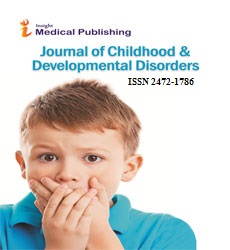Abstract
The Impact of Bilingual Experience on The Literacy Development of Struggling Readers
The rapid increase in linguistic diversity in schools worldwide over the past two decades has prompted a new generation of research on the impact of early bilingual experience on the literacy development of young children. So far, the field has concentrated on such impact among typically-developing children. In this editorial, we argue that this line of research should be expanded to focus on struggling readers, or children at-risk for reading disabilities. Documented similarities in the distinctive linguistic and cognitive profiles of struggling readers who are monolingual and bilingual, combined with mounting evidence for bilingual advantage in verbal and non-verbal abilities, have led us to hypothesize that delay in reading development among struggling readers may be mitigated by bilingual experience through three mechanisms: a) enhanced attention control that allows for more efficient use of working memory during reading; b) increased sensitivity to linguistic structures; and c) availability of compensatory reading strategies through literacy development of a second language. These three mechanisms are explicated in this editorial to call for a new research agenda in the field of childhood and developmental disorder.
Author(s):
Li-Jen Kuo, Zhuo Chen and Shaun W Ko
Abstract | Full-Text | PDF
Share this

Google scholar citation report
Citations : 504
Journal of Childhood & Developmental Disorders received 504 citations as per google scholar report
Abstracted/Indexed in
- Google Scholar
- China National Knowledge Infrastructure (CNKI)
- Directory of Research Journal Indexing (DRJI)
- WorldCat
- Publons
- Geneva Foundation for Medical Education and Research
- Secret Search Engine Labs
- Euro Pub
Open Access Journals
- Aquaculture & Veterinary Science
- Chemistry & Chemical Sciences
- Clinical Sciences
- Engineering
- General Science
- Genetics & Molecular Biology
- Health Care & Nursing
- Immunology & Microbiology
- Materials Science
- Mathematics & Physics
- Medical Sciences
- Neurology & Psychiatry
- Oncology & Cancer Science
- Pharmaceutical Sciences

